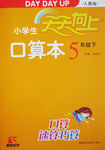题目内容
【题目】假定英语课上老师要求同桌之间交换修改作文,请你修改你同桌写的以下作文。文中共有10处语言错误,每句中最多有两处。每处错误仅涉及一个单词的增加、删除或修改。
增加:在缺词处加一个漏字符号(∧),并在其下面写出该加的词。
删除:把多余的词用斜线(\)划掉。
修改:在错的词下画一横线,并在该词下面写出修改后的词。
注意:
1. 每处错误及其修改均仅限一词;
2. 只允许修改10处,多者(从第11处起)不计分。
Two years ago, my class went on a five-day school trip in Paris! There was thirty of us and four teachers. We both went in one big and comfort coach. We watched a video and listened some CDs on the journey. It takes us only three hours to reach Paris. The hotel was very old, and the rooms were nice and the beds were great! When we went shopping, I tried to practise the French. We visited art galleries and I took lots of photo. The river trip was which I enjoyed most. Leave Paris made me sad as I had a lovely time there.
【答案】1. was→were 2. both→all 3.comfort →comfortable 4.listened后加to
5.takes→took 6.and→but 7.去掉the 8.photo→photos 9.which→what 10. Leave→Leaving
【解析】
本文是记叙文。文章讲述了作者和全班同学两年前的一次巴黎之行。
1.考查主谓一致。在there be句型中,be动词的单复数遵循就近原则,此处是根据主语thirty of us and four teachers变化,be动词应该用复数形式。故was改为were。
2.考查代词。both指两者“都”;句中we指代上一句中的thirty of us and four teachers,指多者,应用all,表示三者或三者以上“都”。故both改为all。
3.考查形容词。and是并列连词,连接两个并列的成分;前面big是形容词,comfort也应用形容词形式,修饰coach。故comfort改为comfortable。
4.考查固定短语。短语listen to“听”。故listened后加to。
5.考查时态。根据时间状语Two years ago, 文章叙述的是过去发生的事情,全文用一般过去时,因此takes也用一般过去时;take是不规则变化动词,过去式为took。故takes改为took。
6.考查连词。前一句说“旅馆很旧”,后一句说“房间很好”,两个句子之间是转折关系,and表示并列关系,应用but表示转折关系。故and改为but。
7.考查冠词。French是语言,表示语言的名词前用零冠词。故去掉the。
8.考查名词单复数。photo是可数名词,前面有lots of 修饰,应用复数。故photo改为photos。
9.考查表语从句。句意:河上之行是我最喜欢的。分析句子结构,which I enjoyed most是表语从句,从句中I enjoyed后缺少宾语,应用what引导表语从句,在从句中作宾语,意思为“……事情”。故which改为what。
10.考查非谓语动词。分析句子结构,Leave Paris在句中作主语,应该动名词形式。故Leave改为Leaving。

 天天向上口算本系列答案
天天向上口算本系列答案